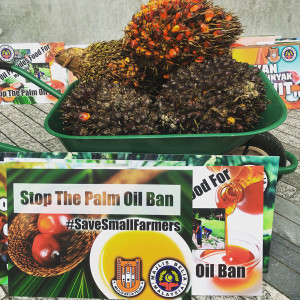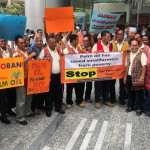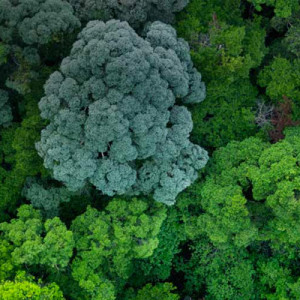The Proposed EU Ban On Palm Oil As Biofuels, And One Stringent Certification : Protectionism or Fulfilling UN Sustainable Development Goals (SDG)
The EU Parliament is set to vote in early 2018 on the banning of palm oil as biofuels from 2020, and palm oil and palm products requiring a tougher, unified certification scheme from 2020. This is supposed to meet the United Nations Sustainable Development Goals. But with this ban, 650,000 smallholders and 3.6 million people who rely on the palm oil industry will be adversely affected in terms of their livelihood and well-being.
The irony is that the first two critical goals of the UN Sustainable Development Goals (SDG) are to end poverty in all its forms everywhere, and to end hunger, achieve food security, improved nutrition and promote sustainable agriculture. Thus in order to meet the SDG, the EU is actually forcing millions of small farmers throughout Malaysia, Indonesia and Thailand back into poverty, which doesn’t meet the #1 goal of the SDG to eradicate poverty in all its forms everywhere.
 The EU’s trade and development policy also emphasizes that the countries should have ownership of their own development strategies, with a view of making trade policy contribute to the development of the countries or region. The EU policy further emphasizes that the EU will support the countries’ efforts to develop and expand their trade as a way to grow their country and reduce poverty.
The EU’s trade and development policy also emphasizes that the countries should have ownership of their own development strategies, with a view of making trade policy contribute to the development of the countries or region. The EU policy further emphasizes that the EU will support the countries’ efforts to develop and expand their trade as a way to grow their country and reduce poverty.
So why is the EU back-tracking on the noble objectives of the UN’s SDG and its own trade and development policy? How would the EU benefit from such a ban and enforcing an unattainable single certification which would incur too much cost for smallholders to achieve?
Could it be that the EU is protecting its own oilseed crop i.e. the rapeseed and sunflower, which are even more unsustainable compared to palm oil? And why are the rapeseed and sunflower oils not on the same list as the soon-to-be-banned palm oil? Why is palm oil the only oilseed subjected to such extreme scrutiny and certification?
Every country to a certain extent protects its own trade and industries. But protectionism is a two-edge sword that cuts both ways. ASEAN, the 12-nation bloc of Southeast Asian countries, is the third largest trading partner of the EU, outside of Europe. Malaysia, Indonesia and Thailand, the three affected countries, are founding members of ASEAN.
Will there be trade retribution for impoverishing millions of smallholders across the ASEAN region with the impending EU vote on palm oil?
In June 2017, the EU Trade Commissioner, Cecilia Malmstrom said that the scourge of protectionism is on the rise. It affects European firms and their workers, and urge the G20 leaders to walk the talk and resist protectionism. Europe will not stand idly by and will not hesitate to use the tools at hand when countries don’t play by the rules. In September 2017,
EU Ambassador, Hans Schweisgut, has called upon China to adopt trade policies based on an open, rules-based and fair global economy.
So will the EU walk the talk and play fair when it comes to Malaysian palm oil?
As the world-leading sustainable palm oil producing country, Malaysia has demonstrated serious commitment towards sustainability by making the Malaysian Sustainable Palm Oil Standard (MSPO) mandatory for all Malaysian producers, big and small alike by 2020. Malaysia’s forest protection is vastly superior to that of almost every EU member country, and is recognised by the United Nations and World Bank among others.
Malaysian palm oil exporters are able to meet the most stringent standards of sustainability required by European customers, and Malaysian palm oil biofuel exporters have been certified as sustainable by leading European sustainability schemes, including the German ISCC (International Sustainability and Carbon Certification). Even Malaysia’s timber international certification is well received by the EU.
The EU should demonstrate its global leadership by helping palm oil producing and developing countries to achieve their respective Sustainability Palm Oil national standards, and accept that palm oil is one of the most sustainable, most effective land-usage oilseed crops that produces nutritious oil and fats and ensures food security for the world.
By Imran Beng










Leave a Reply